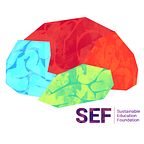Meet Sri Lankan Researcher —Madhuranga Rathnayake
What are you currently working on or worked on before?
Currently, I am studying a novel solar cell material -metal halide perovskites- using computer simulations. Particularly, I am developing advanced models where we can describe molecular level events -such as nucleation and crystal growth- with better accuracy.
What encouraged you to pursue your research topic?
I am always passionate about cleaner energy solutions. Despite the long history of the conventional silicon-based solar cell, they pose numerous limitations. The power conversion efficiency is at a max and the production process carries a large energy footprint. I believe that there has not been a better time to look at eco-friendly and sustainable energy sources than today. The materials I am studying are one such alternative with a few bottlenecks that we need to overcome before they become commercially viable. Computational modeling is paramount in such instances to study molecular level phenomena with reasonable accuracy. That is the main motivation behind my research.
What is the name of your current institute?
School of Chemistry, The University of Sydney.
Where do you find your best inspiration for your work?
Doing research is not always thrilling. There are ups and downs. But looking at the big picture and realizing that my research outcome is a piece solving the issues on the horizon always motivates me to continue and do more research.
Can you share with us some of your publications?
Yes, you can find them using the below-mentioned URL.
What’s one of your biggest personal achievements so far?
Looking back at my journey as a researcher, today, I am most proud of my contribution made to the scientific community. Especially, about the latest findings of my research about the development of polarisable force field parameters to study metal halide perovskite which was recently published in the Journal of Chemical Physics.
What lessons would you share with a budding researcher?
Always lay a good foundation into what you are studying. The more exposure you have in your sphere of work, the more windows you will see where you can utilize your expertise to bring about change to the world. But, how do you get that exposure? reach out for opportunities, talk to people, ask for help, collaborate, and share what you know, no matter how small you think it is. That would be my one piece of advice for an upcoming researcher.
What motivated you to be a researcher?
The life of a researcher is full of solving mysteries, thinking outside of the box, and learning new things every day. Also, it is rather challenging yet enjoyable when you get to contribute to a course, even by a little. These reasons have been and always keep inspiring me to continue research.
If there is a chance, will you help build research in Sri Lanka?
I definitely will. Even now I am collaborating with Sri Lankan students in computational chemistry research and I would be happy to contribute to such a great cause in every way possible.
According to your opinion, what are the changes that the Sri Lankan education system needs to do, in order to meet the requirement of the international industry and academia?
Without a doubt, Sri Lankan universities lay a good foundation for all the subjects the students are reading at the university. However, I would like to see more up-to-date, dynamic, internationally recognized resources added to the syllabi. Such an initiative would not only enhance the employability of students but it also can inspire young adults to pursue higher studies/research in the world outside. However, it is also noteworthy that an undergraduate is expected to be an independent, enthusiastic learner who should not be dependent only on a syllabus. Therefore, it is a balance between the university creating the best environment for the young potential skills while the students making the best out of those opportunities adding value to it on their own.
One other additional thing that I noticed is the choice of subjects being constrained by the University. For example, there are no or fewer University courses where students can combine art + computer science or biology + mathematics. This could sound crazy, but the intersection of these subjects create strong candidates for academia and also for the job market.
